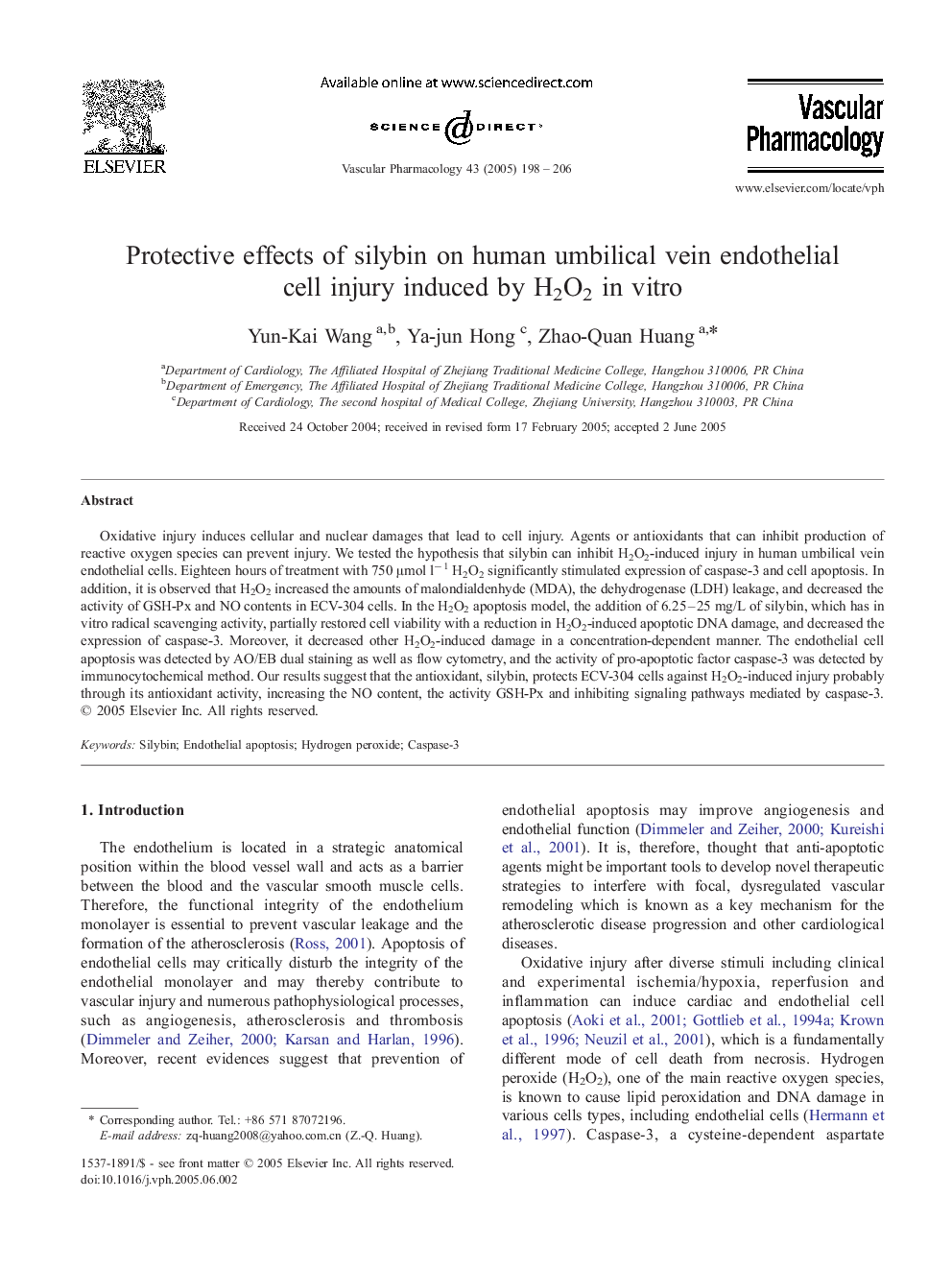| کد مقاله | کد نشریه | سال انتشار | مقاله انگلیسی | نسخه تمام متن |
|---|---|---|---|---|
| 9020842 | 1129731 | 2005 | 9 صفحه PDF | دانلود رایگان |
عنوان انگلیسی مقاله ISI
Protective effects of silybin on human umbilical vein endothelial cell injury induced by H2O2 in vitro
دانلود مقاله + سفارش ترجمه
دانلود مقاله ISI انگلیسی
رایگان برای ایرانیان
کلمات کلیدی
موضوعات مرتبط
علوم پزشکی و سلامت
پزشکی و دندانپزشکی
کاردیولوژی و پزشکی قلب و عروق
پیش نمایش صفحه اول مقاله

چکیده انگلیسی
Oxidative injury induces cellular and nuclear damages that lead to cell injury. Agents or antioxidants that can inhibit production of reactive oxygen species can prevent injury. We tested the hypothesis that silybin can inhibit H2O2-induced injury in human umbilical vein endothelial cells. Eighteen hours of treatment with 750 μmol lâ 1 H2O2 significantly stimulated expression of caspase-3 and cell apoptosis. In addition, it is observed that H2O2 increased the amounts of malondialdenhyde (MDA), the dehydrogenase (LDH) leakage, and decreased the activity of GSH-Px and NO contents in ECV-304 cells. In the H2O2 apoptosis model, the addition of 6.25-25 mg/L of silybin, which has in vitro radical scavenging activity, partially restored cell viability with a reduction in H2O2-induced apoptotic DNA damage, and decreased the expression of caspase-3. Moreover, it decreased other H2O2-induced damage in a concentration-dependent manner. The endothelial cell apoptosis was detected by AO/EB dual staining as well as flow cytometry, and the activity of pro-apoptotic factor caspase-3 was detected by immunocytochemical method. Our results suggest that the antioxidant, silybin, protects ECV-304 cells against H2O2-induced injury probably through its antioxidant activity, increasing the NO content, the activity GSH-Px and inhibiting signaling pathways mediated by caspase-3.
ناشر
Database: Elsevier - ScienceDirect (ساینس دایرکت)
Journal: Vascular Pharmacology - Volume 43, Issue 4, October 2005, Pages 198-206
Journal: Vascular Pharmacology - Volume 43, Issue 4, October 2005, Pages 198-206
نویسندگان
Yun-Kai Wang, Ya-jun Hong, Zhao-Quan Huang,